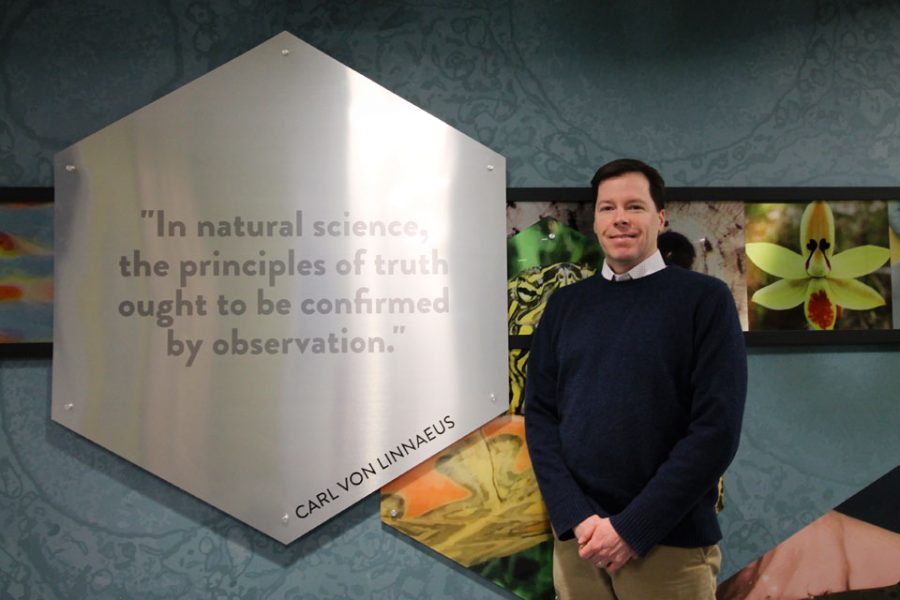Dr. Richard Mayden, of Saint Louis University’s biology department, and Steven Layman, of Geosyntec Consultants in Kennesaw, Ga., discovered five new species of fish in the U.S. this past month.
Mayden holds the W.S. Barnickle Endowed Chair of Natural Sciences at SLU and has netted nearly $4 million in federal funding this past year. This was used to conduct an inventory of Cypriniformes. These fish are found on nearly every continent and are like minnows, shiners and carp that are in most freshwater ecosystems. They range from small, no bigger than a mosquito, to 100 pounds.
“As we discover and describe new species over the next few years, we’ll find they are more important than we ever thought,” Mayden said.
The species were previously considered to be mere isolated populations of a speckled darter fish, but are recognized as separate species based on their male breeding colors and morphology, the form and structure of organisms.
Named by Mayden and Layman, the scientific names of the fish are: Etheostoma obama (spangled darter), Etheostoma teddyroosevelt (highland darter), Etheostoma gore (cumberland darter), Etheostoma jimmycarter (bluegrass darter), Etheostoma clinton (beaded darter).
According to the Tennessee Aquarium Conservation Institute, the fish are named after political figures who worked to support environmental issues and scientific advances.
“The spangled darter is named after President Barack Obama for his policies on promoting clean energy, energy efficiency, environmental protection and humanitarian effort during challenging economic times,” the Institute said. “The highland darter is named after former president Theodore Roosevelt for his enduring environmental conservation legacy, the designation of national forests and wildlife refuge.”
The highland darter species resides in the Arkansas drainages on the Ozark Plateau in Missouri, Arkansas and corners of Kansas and Oklahoma.
The species reside throughout river drainages just west of the Appalachian Mountains. They are part of the group darters, perch-like fish found in freshwater streams in North America. Perch comes from the Latin perca and the Greek perk?, meaning spotted.
Mayden said his latest discoveries are further evidence that there are plenty of new species waiting to be found in our own “backyards.”








